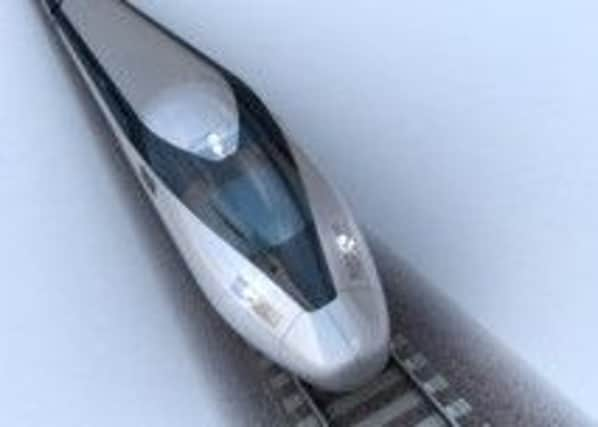Watchdog slams government over HS2’s over-inflated benefits


In a report released today, the NAO said the department needs to ‘sense-check the results of its analysis particularly where there is strong external pressure to go ahead with a programme’.
It said failure to do this can undermine public confidence in big schemes such as £50bn HS2, which would cut through Bucks.
Advertisement
Hide AdAdvertisement
Hide AdIn 2010, the Department for Transport claimed that for every £1 spent on HS2, it would deliver £2.60 of benefits, however following criticism that this figure was unrealistic, it was revised down to £1.40.
The NAO adds that the department ‘does not always recognise the limitations of its analysis nor scrutinise outputs to make sure they make sense. This means that its analysis has been open to challenge and, in some cases, decisions have been made using unrealistic analysis’.
It also criticised the department for being ‘slow to take account of potentially significant changes to passenger behaviour in its initial economic analysis for HS2’.
The first forecasts failed to place any value on the time business travellers spend on trains, such as using their laptops to do work. This made the case for a high-speed train network much stronger, as it reduced business traveller’s ‘dead’ time.
Advertisement
Hide AdAdvertisement
Hide AdThe department subsequently revised its business case to include the value of business travellers’ time – although critics argue it compensated for this by increasing the number of business users they predict would use HS2 to keep the benefit-cost ratio up.
The report also criticises the DfT for a ‘lack of systematic evaluation’, ‘insufficient focus’, ‘unrealistic milestones’, lack of key management information, financing choices driven by affordability ‘rather than value for money’, unclear strategic cases for investment, ‘confused’ governance roles, ‘shortcomings’ in the use of economic analysis’, and delayed decision making.
Worryingly, it also states that the department ‘has limited programme management skills for the scale of its investment programme’, with the ‘shortage of skilled staff’ an issue they have repeatedly commented upon. T
Stop HS2 campaign manager Joe Rukin said: “It is hardly news that there was no common sense used when drawing up the business case for HS2, as every argument for the project has been knocked down, and it has only survived because of stubborn politicians who do not want to face the facts organisations like the NAO have revealed.”
Advertisement
Hide AdAdvertisement
Hide Ad“When the national auditors are saying the business case for HS2 was overstated by 86% because there was a lack of common sense, unrealistic analysis and double counting, you have to wonder how many other things have been got fundamentally wrong concerning HS2.
“The whole case for HS2 has been made up and the project should be cancelled before more money is wasted because of politicians vanity.”
The National Audit Office review examined five major rail projects sponsored by the Department for Transport since 1998 and details 11 lessons it should apply to its current and future programmes.